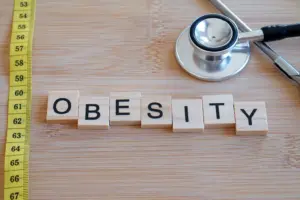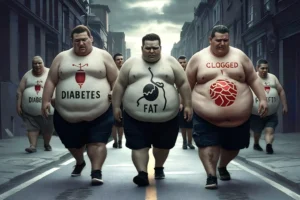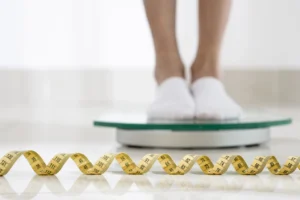
Weight loss tips in 40s: Have you ever noticed that what worked for you in your 20s or 30s to lose weight doesn’t seem to work anymore? You eat less, cut calories, stay active, and the scale won’t budge. You’re not alone, and it’s not a willpower issue.
As you age, real physiological shifts, slower metabolism, hormonal changes, and gradual muscle loss change how your body burns calories and stores fat, making weight loss tougher than before.
Also Read | How to know if you’re obese: BMI, waist ratio & other indicators
Here’s why weight loss gets harder with age:
Your metabolism slows down:
Slower metabolism is one of the biggest reasons why weight loss becomes difficult as you age. Metabolism is how your body turns food and drink into energy. Even at rest, you burn calories to keep your heart beating, lungs breathing, and brain working. This is called the basal metabolic rate (BMR). From your 30s onwards, BMR naturally declines, so you burn fewer calories doing the same things you used to. If your eating habits stay the same, that mismatch can lead to gradual weight gain, even when your lifestyle hasn’t changed much.
You lose muscles with time:
Muscle isn’t just about strength; it’s also important to burn calories. The more lean muscle you carry, the more energy you burn, even at rest. From your 30s and 40s onwards, natural muscle loss (sarcopenia) sets in. As muscle declines, metabolism slows, fat is stored more easily, and you’ve got less power to stay active. Without consistent strength training, that slide continues into your 50s, 60s, and beyond.

Hormonal changes play a crucial role:
Hormones are your body’s messengers, shaping appetite, energy use, and where fat is stored. Oestrogen levels drop in women around menopause, often shifting fat towards the belly; in some women, thyroid slowdowns can also nudge weight up. In men, falling testosterone contributes to muscle loss and lower energy, making fat gain easier. Chronic stress and poorer sleep can push up cortisol, a hormone linked to increased abdominal fat.
Less physical activity:
Let’s be honest, life changes as you start getting older. You might sit longer at work, have more family responsibilities, or just feel too worn out after a long day. Also, joint issues or injuries might stop you from being as active as you need to be. The result: less movement, fewer calories burned, and a tougher time managing weight.
Tips to lose weight:
Don’t lean on walking or cardio alone. Add strength or resistance training 2–3 times a week to rebuild muscle and nudge your metabolism up. Skip crash diets; instead, prioritise proteins and build meals around vegetables, fruits, and whole grains. Make sleep a non-negotiable: aim for 7–8 hours nightly and keep a consistent bedtime.
Also Read | 9 hidden ways obesity is harming your health
Weight loss does get tougher with age, but it’s not impossible. Your body just needs a smarter strategy and steadier care. Be patient, stay consistent, and be kind to yourself; you’re not failing but adapting with age.






